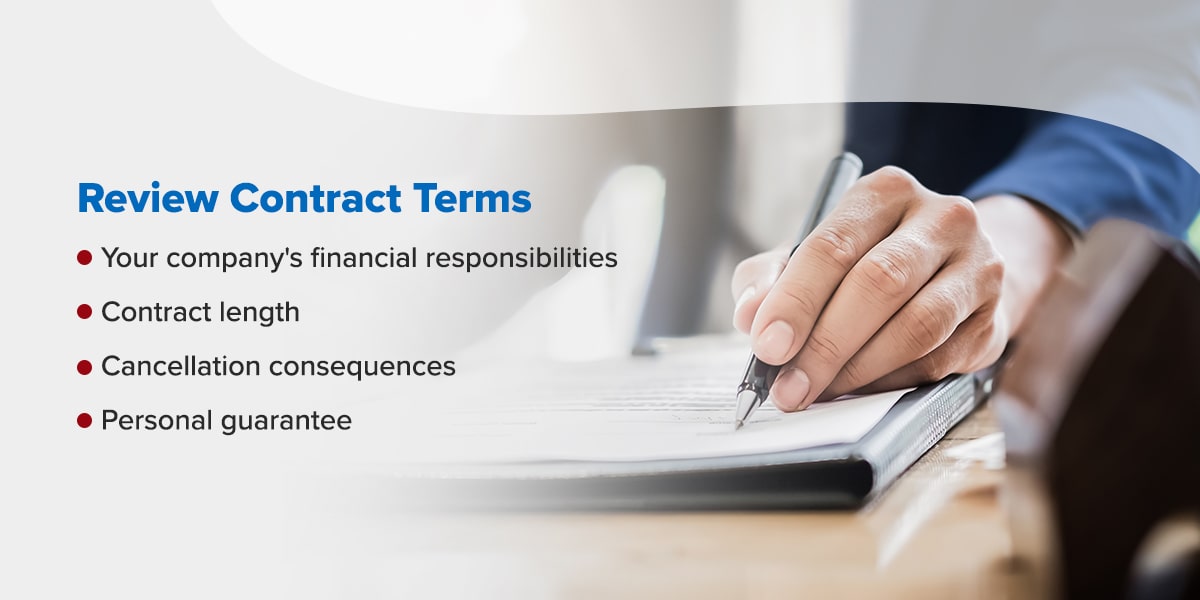
Partnering with a factoring company, also called a factor, can improve your company’s cash flow management by obtaining immediate funds for your customers’ outstanding invoices. When you consider selling your unpaid invoices to a factor, you could be overwhelmed by the number of factoring companies in operation. Understanding how to choose a factor requires due diligence, but the time you spend researching factors will be well worth it.
Selecting a factor that suits your business needs will significantly help optimize your operations. Discover tips for picking a factoring company in this helpful guide.
If choosing a factoring company sounds like a good solution for your business’ cash flow needs, carefully research and compare factors to find the one that suits your business needs. Follow these tips for picking a factoring company to ensure you find the best terms and rates:
Factoring companies vary widely in their specialties, rates and offerings. Some factors work in specific industries, like manufacturing, construction or medical. Others work only with businesses of a particular size. It can be invaluable to work with a factor with extensive experience working factoring invoices for other companies in your industry.
Although the factoring process of buying and pursuing payment for accounts receivables is pretty standard, unique industry characteristics might require different expertise. It could be a waste of your valuable time to explain common terms or everyday business operations to a factoring company with little or no experience in factoring invoices for your industry.
Picking a factor that understands your business model, unique needs and industry-specific cash flow risks can help ensure the factoring process goes smoothly. For example, some factors specialize in transportation and trucking. If you run a trucking company, selecting a factor with experience in the transportation industry to manage your freight bill factoring can help you keep up with customer demands.
Picking a factor should be as careful as selecting another business partner. After all, your company will work with the factoring company throughout the duration of the factoring agreement. Once you commit to working with a factor, your business must find a way to solve potential issues that arise in the relationship. It can be highly beneficial to determine the flexibility a factor offers before agreeing to work with them.
Most factors will have their clients sign a factoring agreement. This contractual agreement outlines the terms and conditions of the business relationship. Some factoring agreements provide client companies with more flexibility than others. Your goal should be to find a factor that offers the flexibility your business needs.
Some areas to look for flexibility in a factoring agreement include:
Excellent customer service is vital when selecting a factor. Factoring companies are performing a service for your business, and you may need to communicate with them often throughout your relationship. It can be frustrating to spend hours on the phone to get in touch with a partner or supplier and you shouldn’t put up with it from your factoring company. Prompt, accessible customer service is essential for helping the factoring process work efficiently.
Finding out whether a factoring company provides good customer service might take some investigation. The speed and attention with which a factoring company responds to emails and returns phone calls during the sales process is a valuable insight into a factor’s customer service, but it isn’t the only source of information. Pay attention to whether their clients receive a personal account manager for their business. Look for client reviews to help gauge whether the factoring company provides the same attention to all of its clients.

Factors might use a standard factoring agreement or be willing to change the terms under certain conditions. Either way, it’s crucial that you carefully review the terms of the factoring agreement before signing. The agreement stipulates each party’s responsibilities in the factoring relationship and gives your business a clear understanding of its obligations. Be willing to try negotiating for the terms that best suit your company’s needs. If you have questions about the contract’s wording, consult your attorney.
Here are a few of the most important contract terms to review in your factoring agreement:
Comparing pricing is another essential step in choosing a factoring company. Some factors use a monthly pricing structure for their services, while others pay a one-time fee. Some factors might charge a percentage rate for how long it takes to obtain payments from the customers. Your company may also have to pay fees if it doesn’t meet the monthly invoice minimum, expenses for running background checks on debtors and more. Weigh the fees each factoring company charges with their services to find the best value.
Selecting a factor that provides the services and support your company needs can offer greater efficiency in cash flow management. By researching the factoring companies you may work with and comparing your options, you can choose the best services and terms for your unique situation.
At FactorFox, we offer factoring services for companies looking to factor their invoices. Our experienced team provides factoring services for multiple industries, from freight and construction to medical and manufacturing. As an all-in-one factoring and funding solution, we offer efficient services and robust support to support your business’ cash flow. Our pay-as-you-go service allows your business to choose the plan that suits its needs.
Schedule a demo today to see how factoring with FactorFox can empower your business to improve its bottom line.